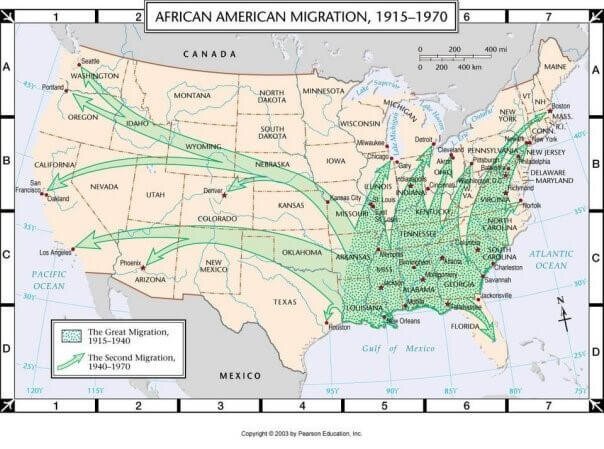The Great Migration
The Great Migration refers to the movement of more than 6 million Black people from the South to cities in the North, Midwest and West, from 1916 to 1970. It was one of the largest migrations in American history and it left a definitive impact on American culture and politics. The creation of brutal Jim Crow laws, which legalized segregation and violence against Black people in the South, spurred many to escape the cycle of oppression that included sharecropping, which was set up so that Black farmers always owed money to landowners.
Factory, foundry and slaughterhouse jobs were available, thanks to the labor shortage prompted by WWI. News of jobs and opportunities for a better life spread through articles in the Chicago Defender and the Pullman porters who worked on the trains that traveled from the South to the North. Black people were segregated into neighborhoods like Bronzeville, where the collective power of creativity and innovation developed businesses and a thriving music and art scene, inspiring the neighborhood's nickname of the Black Metropolis.


